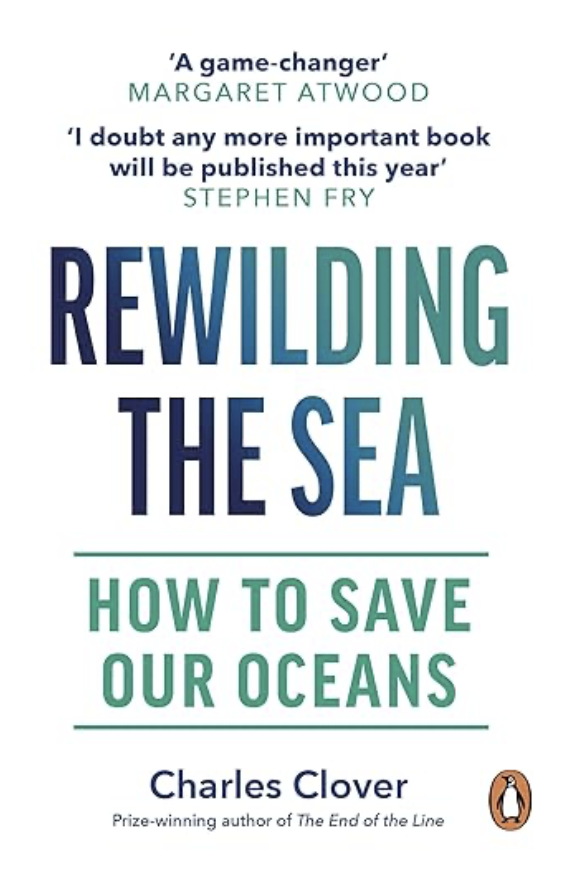Charles Clover, ‘Rewilding the Sea. How to Save our Oceans‘

I owe Charles Clover a lot. He gave me a trip down memory lane and showed me optimism is justified.
I so enjoyed his other book, The End of Line , that I sent a signed copy to every Commissioner for the summer time reading. Several sent notes back on some section I thought they would be interest in.
And, when the book became a powerful movie, I was happy to host a screening of the movie in Brussels and a debate with the then fisheries Commissioner, Mr. Borg.
EU Fisheries policy is one of the reasons I got interested in the EU – thanks to the late Sir Teddy Taylor MP – and led me to move to sunny Brussels. The first piece of legislation I worked on fishing nets with Gordon Adam MEP. It led over time to working for WWF and others on fisheries.
The governance of fisheries the world over is, in the main, downright weird. Most fisheries ministries seem focused on one thing – keeping their constituency, the industrial fishing industry happy with a constant drip feed of subsidies and ignoring the laws of nature and allowing too many fish to be caught. I learned not to be surprised when officials and politicians gave me the same speaking points as fishing industry lobbyists.
I found fishing quota negotiations in December a highlight of my year. You’d see government delegations from many countries swelled with men who bore a remarkable resemblance to fishermen. And, when I secured access to the EU-Norway talks, I discovered the best time of year to head to one’s Carribeanean golf course.
And, it is still the only job when a senior official recommended I needed to buy bullet proof vest.
Charles highlights the brave stance taken by a few ministers and commissioners – Ben Bradshaw and Maria Damanaki – to fight overfishing in Europe. I know there are more, but given they are still working, I’ll not name them.
Charles is able to vividly bring the wonder and beuaty of our oceans to life. He tells a series of powerful stories of how, together with Blue, the foundation he co-funded, helped deliver real conservatiion solutions throughout the world.
If NGOs could communicate as clearly and powrerfully as Charles can, maybe more fisheries would be taken more seriously. Dry position papers on MSY or a new excel sheet on catch levels from ICES don’t persuade enough people, let alone the people making the decisions.
The books gives useful lessons for NGOs to draw on. Charles shows none of the common naivety of many NGOS that supermarkets alone will save our oceans. Blue shows little of the inertia and arthritic speed of movemement. All good campaigning NGOs, desiring positive change, need to bring working solutions to the table, and harness opportunities.
Blue also stepped up when many leading NGOS with a track record of working on imporving fisheries and Oceans stepped back. And, Charles makes a powerful case to rein in the derstrusttive global Chinesse fleet. Too many are scared to call out China’s pernicous influence.
For those too many climate obessives, they’ll be happy to learn that the most cost effective means to deliver real carbon capture and storage is to stop overfiging, stop the slaughter of sharks, leave whales to return to historic levels, and let sea kelp forests flourish.
It is a book I hope the new Fisheries Commissioner reads.